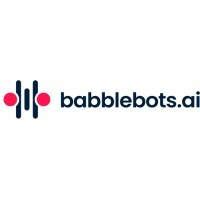Job Role: Linux Administrator with Azure DevOps
Primary Responsibilities
1. Linux System Administration
• Administration of Linux servers (RHEL, CentOS, Ubuntu, etc.).
• Perform Linux OS hardening and patching.
• Configure and maintain user accounts, groups, permissions, and ACLs.
• Implement and maintain cron jobs for automation of system tasks.
• Ensure system backups and recovery procedures are in place.
2. Security & Compliance
• Apply Linux security best practices (firewall, SELinux, AppArmor).
• Configure SSH, key-based authentication, and secure remote access.
• Monitor and address system vulnerabilities in line with compliance requirements.
3. Storage & Networking
• Attach, detach, and manage storage volumes and disk allocations.
• Troubleshoot network connectivity, DNS, and routing issues.
• Configure email servers, DNS.
4. Automation & Scripting
• Develop and maintain Bash scripts for system automation.
• Manage CI/CD pipelines using Jenkins and Git.
• Support in programmable infrastructure via Infrastructure as Code.
5. Containerization & Orchestration
• Manage and deploy applications using Docker & Docker Swarm.
• Hands-on with Azure Kubernetes Service (AKS) for microservices deployment and
scaling.
• Troubleshoot container workloads, networking, and persistent storage.
6. DevOps & Cloud Integration
• Work with Azure DevOps for pipeline automation and release management.
• Integrate monitoring and logging (Prometheus, Grafana, ELK, Azure Monitor).
• Collaborate with development teams for microservices deployment strategies.
7. Disaster Recovery & Business Continuity
• Implement backup strategies for Linux servers and applications.
• Support DR planning and failover testing on Azure cloud.
Key Skills
• Strong knowledge of Linux OS internals (RHEL, Ubuntu, CentOS).
• Proficiency in Bash, Shell scripting, and automation tools (Ansible, Terraform).
• Experience with containers (Docker, Docker Swarm) and Kubernetes (AKS).
• Familiar with Azure DevOps CI/CD pipelines.
• Security-focused mindset (Linux hardening and patching)
• Strong troubleshooting skills in networking, storage, and application stacks.
In simple terms:
• Linux Admin foundation → System, Security, Storage, Networking.
• DevOps skills → CI/CD, Automation, Infrastructure as Code.
• Containerization skills → Docker, AKS, Microservices orchestration.















